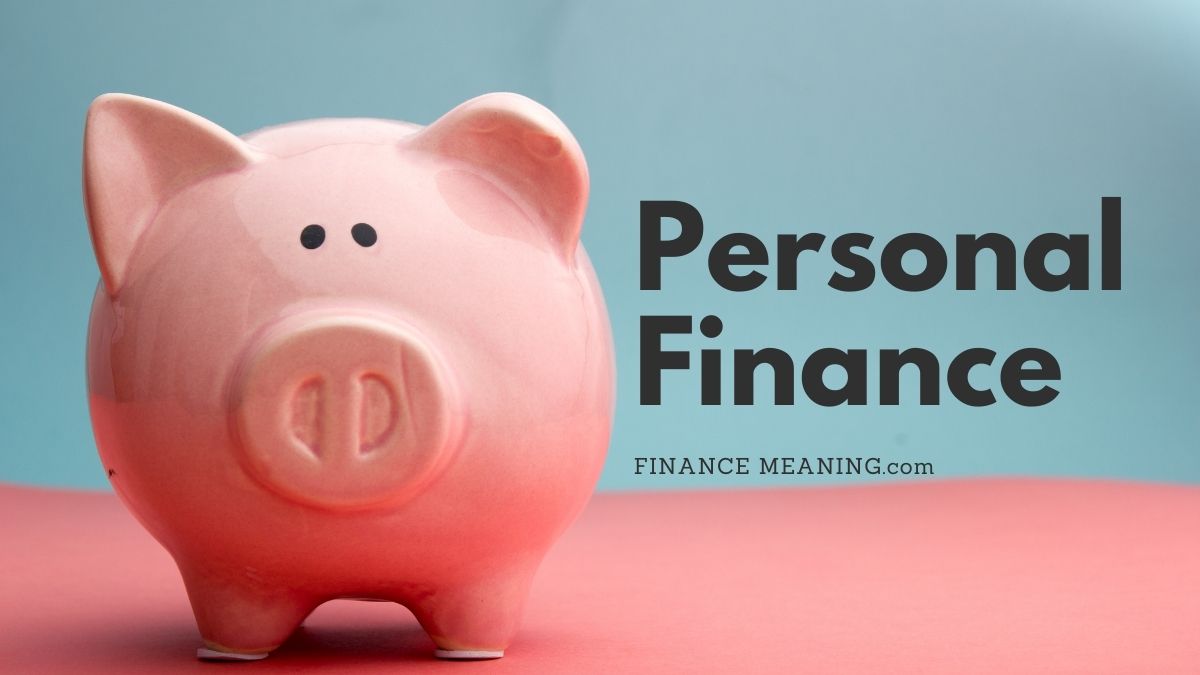Adopting a proactive approach, you can change your money mindset and achieve financial stability. This article will guide you through the steps to overcome financial struggles and transform your relationship with money. Understanding your money mindset is crucial, as it influences your financial behaviors and ultimately your financial wellness. By educating yourself, setting realistic goals, and seeking professional advice when necessary, you can cultivate a mindset of financial abundance and take control of your financial future.
Key Takeaways
- Recognizing and reshaping your money mindset is foundational to improving your financial health and behaviors.
- Positive money affirmations and a money journal can help rewrite limiting beliefs and foster a growth-oriented financial perspective.
- Financial literacy is key to empowerment; utilizing educational resources and courses can significantly enhance financial decision-making.
- Incremental habit changes and setting attainable financial goals are effective strategies for long-term financial transformation.
- Professional financial guidance can be invaluable, especially when aligning financial planning with lifestyle goals and achieving financial wellness.
Understanding Your Money Mindset


What is Money Mindset?
Your money mindset is a deeply ingrained set of beliefs and attitudes that shape how you perceive and interact with money. It’s the internal narrative that guides your financial decisions, from the way you save and spend to how you view wealth and success. It influences every aspect of your financial life, often operating below the conscious level.
- A positive money mindset might include beliefs such as financial freedom is attainable, or that money can be a tool for achieving one’s goals.
- Conversely, a negative money mindset may involve feelings of scarcity, fear of never having enough, or the belief that money is inherently bad.
By recognizing and understanding your money mindset, you can begin to uncover the reasons behind your financial behaviors and set the stage for meaningful change. This self-awareness is the first step towards transforming your relationship with money and creating a more prosperous future.
How Your Money Mindset is Formed
The foundation of your money mindset is laid early in life, influenced by a myriad of factors that intertwine to shape your financial perspective. Family, cultural norms, and personal experiences are pivotal in this developmental process. As children, we absorb the financial habits and attitudes of those around us, especially our parents, who often serve as our primary financial role models.
- Family: Observing how parents manage money
- Cultural norms: Societal expectations and religious beliefs
- Personal experiences: Early jobs, financial successes, or hardships
These elements collectively contribute to the subconscious beliefs that govern our financial behaviors as adults. It’s not just about the numbers; it’s about the underlying psychology of money and how it affects our decisions.
By recognizing the origins of our money mindset, we can begin to understand why we react to financial situations in certain ways. This awareness is the first step towards transforming our approach to personal finance.
The Impact of Money Beliefs on Financial Behavior
Our financial behaviors are deeply intertwined with our beliefs about money. Beliefs such as ‘money is scarce’ or ‘I don’t deserve money’ can lead to a cycle of financial self-sabotage, where opportunities for growth are overlooked or dismissed due to a lack of self-worth or fear of success.
By recognizing and challenging these negative money beliefs, individuals can begin to rewrite their financial narratives, paving the way for healthier financial habits and decisions.
Understanding the impact of these beliefs is crucial for anyone looking to improve their financial situation. Here’s a list of common money beliefs and their potential effects on behavior:
- ‘Money is bad’ may result in avoiding wealth-building opportunities.
- Viewing money as a tool for creating abundance encourages investment and savings.
- The belief that ‘rich people are greedy’ can prevent networking with successful individuals.
Identifying and addressing these beliefs is the first step towards a more empowered financial life.
The Power of Positive Money Affirmations


Identifying and Rewriting Limiting Beliefs
The journey to a healthier financial future begins with confronting the deeply ingrained thought patterns that dictate our relationship with money. Recognizing these limiting beliefs is a crucial step, as they often originate from childhood experiences and societal conditioning. For instance, notions such as "Money doesn’t grow on trees" or "I don’t deserve wealth" can significantly hinder our financial progress.
To effectively rewrite these beliefs, it’s essential to first identify them through introspection. Reflect on messages about money you received growing up, and consider how they’ve shaped your current financial outlook. Once pinpointed, challenge these beliefs by replacing them with positive affirmations. A statement like "I attract money easily and effortlessly" can begin to dismantle the negative mindset.
Repeating positive affirmations daily is more than a practice; it’s a reprogramming of the mind to foster abundance and confidence.
By consciously choosing to overwrite limiting beliefs with empowering ones, you set the stage for a transformative financial journey. This process is not just about changing thoughts; it’s about changing behaviors and outcomes.
Creating a Money Journal for Reflection
A money journal serves as a powerful tool for reflection and growth. By tracking your financial journey, you can uncover patterns and behaviors that shape your relationship with money. Start by noting down your expenses and income, and then delve deeper into your financial decisions and their motivations.
- Reflect on your childhood money story.
- Rewrite limiting beliefs as positive affirmations.
- Commit to small, consistent changes in your habits.
Consistent reflection in your money journal can lead to profound insights and actionable steps towards a healthier financial mindset.
Remember, the goal is not to judge yourself but to understand and improve. As you review your entries over time, celebrate your progress and adjust your strategies as needed. Your journal is a living document that evolves with your financial literacy and goals.
Implementing Affirmations into Daily Life
Incorporating money affirmations into your daily life is a transformative practice that can lead to significant changes in your financial outlook. Start by selecting affirmations that resonate with you, such as "I am worthy of financial abundance" or "Money flows to me effortlessly." Consistency is key; recite your chosen affirmations each morning and evening, and believe in their power to reshape your subconscious beliefs about money.
To solidify the habit, integrate affirmations into your routine at specific times, like during your morning meditation or right before you check your finances. This repetition not only reinforces the affirmations but also anchors them to habitual activities, making them a natural part of your thought process.
Remember, the goal is to internalize these affirmations until they become an unquestioned part of your financial identity. As you do this, you may begin to notice shifts in your behavior and opportunities that align with your new mindset. Here’s a simple daily checklist to help you stay on track:
- Write down your affirmations in your money journal.
- Recite your affirmations upon waking and before sleeping.
- Reflect on any changes in your feelings or experiences related to money.
- Celebrate small victories and milestones that reflect your growing financial confidence.
Educational Pathways to Financial Literacy


Essential Personal Finance Resources
Navigating the world of personal finance can be overwhelming, but having the right resources at your fingertips can make all the difference. Essentials of personal finance include understanding budgeting, debt management, and investment strategies. Here’s a list of free tools and resources that can help you on your journey to financial literacy and independence:
- Budgeting Tools
- EveryDollar Budget App
- Budget Calculator
- Retirement Planning
- Retirement Calculator
- Investment Calculator
- Debt Management
- Debt Snowball Calculator
- Student Loan Payoff Calculator
- Insurance Needs
- Coverage Checkup
The key to financial empowerment is not just in having resources but in actively using them to manage and plan your financial life.
In addition to these tools, consider exploring personal finance books, podcasts, and courses to build a comprehensive understanding of financial concepts. Remember, the goal is to create a solid foundation that will support your financial stability and independence.
Enrolling in Financial Education Courses
Empowerment often comes through knowledge, and enrolling in financial education courses is a pivotal step towards financial literacy. These courses are designed to cover a range of topics, from budgeting and investing to credit management, providing you with the tools to make informed financial decisions.
- Best Overall: edX’s Finances for Everyone: Smart Tools for Decision Making
- Best for Support System: Ramsey Solutions’ Ramsey+
- Best Free Course: Khan Academy
By signing up for courses like the Cash Confident Mindset, you can take the first step toward financial freedom. Led by finance experts, these courses not only impart knowledge but also instill confidence in managing your money.
The more you know about money, the better equipped you’ll be to navigate financial challenges and make choices aligned with your goals.
Staying Informed with Financial News and Updates
In the age of information, staying abreast of the latest financial news and updates is crucial for making informed decisions. Subscribing to newsletters and updates from trusted financial resources can be a game-changer in your journey to financial literacy. It’s a simple yet effective way to ensure you’re always in the loop.
- Subscribe to newsletters from reputable sources like EveryIncome or NAIFA.
- Regularly check blogs and articles that cover a wide range of financial topics.
- Set aside time each week to review the latest economic trends and investment opportunities.
By consistently engaging with financial content, you cultivate a habit of learning and staying current, which is indispensable for financial empowerment.
Next Gen Personal Finance resources, for instance, offer a wealth of knowledge and tools that are essential for securing a stable financial future. The key takeaways from these resources highlight the importance of education, the integration of technology, advocacy tools, and community engagement.
Strategies for Shifting Your Money Habits


Setting Realistic Financial Goals
Setting clear and meaningful financial goals is crucial for steering your financial journey in the right direction. Begin by defining what financial success means to you, and then establish goals that are specific, measurable, achievable, relevant, and time-bound (SMART). This approach ensures that your goals are not just wishes, but actionable targets.
- Identify your short-term and long-term aspirations, such as paying off debt or saving for retirement.
- Break down each goal into actionable steps.
- Regularly track your progress to stay motivated and make necessary adjustments.
By setting realistic financial goals, you create a roadmap that guides your spending, saving, and investment decisions, ultimately leading to a more secure financial future.
Understanding your financial situation is the foundation for setting achievable goals. Start by tracking your spending habits and organizing your financial information. Tools like budgeting apps or spreadsheets can provide a comprehensive view of your finances, helping you to make informed decisions and pinpoint areas for improvement.
Adopting a Proactive Approach to Money Management
By adopting a proactive approach, you can change your money mindset and achieve financial stability. It’s about taking control of your financial future and actively seeking out opportunities to improve your financial health.
Concrete steps are the backbone of a proactive money management strategy. Setting clear money goals, tracking your progress, and understanding the effects of your spending habits are pivotal in this transformation.
Here are some essential actions to consider:
- Identify your money triggers and their impact on your spending.
- Engage in mindful money conversations with peers or financial advisors.
- Educate yourself about personal finance through books, websites, and courses.
- Make a budget to plan your spending and saving, and adjust it as necessary.
Remember, the journey to financial empowerment begins with a single step. Start by enrolling in educational courses like the Cash Confident Mindset course to gain the knowledge needed for sound financial decisions.
Making Incremental Changes for Lasting Impact
The journey to financial well-being is often marked by small, consistent steps rather than giant leaps. Making incremental changes to your money habits can lead to significant and sustainable improvements over time.
- Start by evaluating your current spending and identifying areas where you can cut back without feeling deprived.
- Implement a system for tracking your expenses and savings, which can be as simple as a spreadsheet or a budgeting app.
- Celebrate small victories along the way to stay motivated and recognize your progress.
By focusing on one change at a time, you give yourself the space to adjust and the opportunity to build confidence in your ability to manage your finances.
Remember, the goal is not to overhaul your life overnight but to cultivate a healthier relationship with money that will support your long-term financial goals. As you continue to make these small adjustments, you’ll find that they compound into meaningful transformation, setting the stage for a more secure and prosperous future.
Seeking Guidance for Financial Empowerment


When to Consider Professional Financial Help
Navigating the complexities of personal finance can be daunting, especially when facing significant financial decisions or challenges. Seeking professional financial help is a step towards gaining control and confidence in your financial journey. It’s important to recognize when to leverage the expertise of financial advisors or credit counselors.
- If you’re feeling overwhelmed by debt, a financial advisor can assist in creating a personalized repayment plan.
- When investing or managing assets, professional advice can tailor strategies to your unique financial goals.
- For those facing financial uncertainty, credit counselors offer negotiation skills with creditors and strategies for financial health.
Professional guidance not only offers clarity and accountability but also equips you with the necessary tools to navigate financial complexities with ease. It’s a partnership that aligns your values with your money decisions, paving the way for long-term success.
Remember, while some individuals thrive with independent financial management, others benefit from the structured support that professionals provide. Explore strategies for financial freedom through an abundant mindset, strategic planning, and innovative approaches.
Exploring Financial Planning and Lifestyle Planning
Financial planning and lifestyle planning are intertwined, with each influencing the other. Creating a comprehensive financial plan is not just about numbers; it’s about aligning your financial goals with your life goals. A financial plan can cover various aspects such as budgeting, retirement planning, and insurance, while lifestyle planning focuses on how you want to live your life and the resources you’ll need to do so.
- Managing Debt And Expenses
- Developing a Debt Repayment Plan
- Cutting Unnecessary Expenses
- Building Financial Literacy And Skills
- Understanding Personal Finance
- Learning About Investing And Saving Strategies
- Taking Action And Overcoming Obstacles
- Implementing Your Financial Plan
- Adjusting Your Plan As Needed To Overcome Financial Setbacks
By visualizing your fiscal path and understanding the components of your financial and lifestyle plans, you can create a roadmap that leads to financial wellness and a fulfilling life.
Remember, financial planning is not a one-time event but a continuous process that adapts to your changing life circumstances. It’s about making informed decisions that will help you reach your goals, whether that’s buying a home, funding education, or ensuring a comfortable retirement.
Leveraging Community Resources for Financial Wellness
Community resources play a crucial role in achieving financial wellness. Local organizations often offer free or low-cost services to help individuals understand and manage their finances better. These services can range from credit counseling to financial education programs, and they provide valuable support for those looking to improve their money management skills.
- Credit counseling services
- Financial education workshops
- Debt management programs
One such example is the Medical Financial Assistance Program offered by Kaiser Permanente, which provides temporary financial assistance to patients, regardless of their health coverage status.
Embracing community resources is a proactive step towards financial empowerment. It allows individuals to gain access to tools and knowledge that can significantly improve their financial situation without bearing the full cost alone.
Conclusion
As we’ve explored throughout this article, transforming your money mindset is not just about changing your thoughts; it’s about taking actionable steps towards financial empowerment. By understanding your current beliefs about money, educating yourself on personal finance, and rewriting limiting beliefs into positive affirmations, you can begin to shift your behaviors and make more informed decisions. Remember, it’s never too late to start on the path to a better financial future. Whether you’re taking a course, seeking professional advice, or simply starting a money journal, each action is a step towards a mindset of financial abundance. Embrace the journey of financial literacy and let the knowledge you’ve gained from personal finance articles guide you to a life of greater financial wellness and stability.
Frequently Asked Questions
What exactly is a money mindset, and why is it important?
A money mindset refers to your unique set of beliefs and attitudes about money, which influence how you make financial decisions and manage your resources. Understanding your money mindset is crucial because it can impact your financial behavior and ultimately your financial well-being.
How is a money mindset formed, and can it be changed?
A money mindset is formed through a combination of personal experiences, cultural influences, and financial education. Yes, it can be changed by consciously adopting new beliefs and practices that support a healthier financial lifestyle.
What are positive money affirmations, and how can they help?
Positive money affirmations are empowering statements that can help you shift negative or limiting beliefs about money to a more positive and abundant perspective. They can help reprogram your subconscious mind and encourage more constructive financial habits.
What kind of financial education resources are available for improving financial literacy?
There are numerous resources available for improving financial literacy, including books, online articles, podcasts, courses, and workshops. Many of these resources are designed to cover various aspects of personal finance, from budgeting to investing.
How can setting financial goals contribute to a better money mindset?
Setting financial goals gives you a clear direction and purpose for your money, which can motivate you to adopt better money habits and make more informed financial decisions. It also helps to track progress and achieve financial milestones.
When should one consider seeking professional financial help?
One should consider seeking professional financial help when dealing with complex financial situations, requiring expert advice for financial planning, or when you feel overwhelmed by financial decisions. A financial advisor can provide personalized guidance to help you achieve your financial goals.





